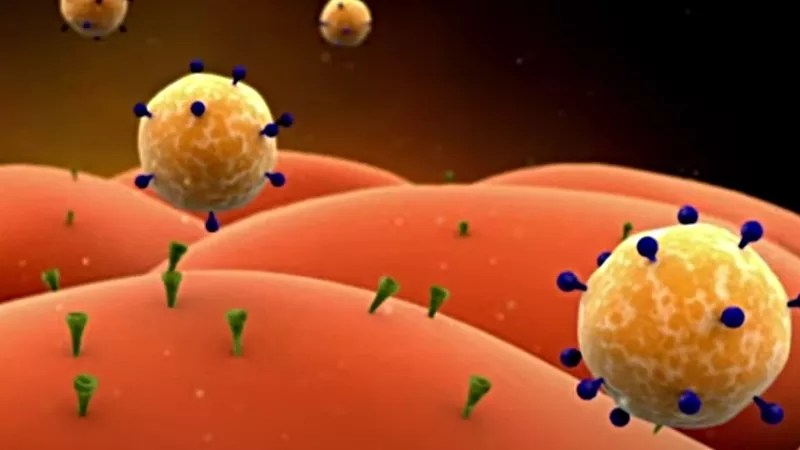
CBC News via YouTube

Audio By Carbonatix
Coloradans, along with people planet-wide, don’t know how worried they should be about mutations of COVID-19. The first American case of the U.K. variant known as B.1.1.7 was identified in Simla in late December, and since then, spread appears to be modest. But while Governor Jared Polis and the CDPHE’s Dr. Rachel Herlihy downplayed the risk of huge case spikes related to new strains during a January 26 press conference, they admitted that much about the evolution of the disease remains unknown.
This same note was struck by Michael Osterholm, a University of Minnesota epidemiologist and member of President Joe Biden’s COVID-19 advisory board, during appearances on CNN and MSNBC later on that day. It’s unclear if the variants’ increased transmissibility will translate to greater mortality, he said – but if it does, the result could be a huge increase in deaths before the impact of vaccinations can be felt on a widespread basis.
The latest data from the Colorado Department of Public Health and Environment, updated at 4:30 p.m. January 26, counts a total of ten variant cases out of 388,620 total – 95.15 percent confirmed, 4.85 percent deemed probable.
So far, no variants other than B.1.1.7 have appeared in Colorado, but the CDPHE stresses that staffers are on the lookout for them. “The Colorado State Laboratory has set up a statewide sentinel surveillance program for whole-genome sequencing of COVID-19 positive patient samples from across Colorado,” a department spokesperson notes. “In addition, we are asking any other labs that have identified potential variant samples to forward them to the state lab for sequencing.”
The only other mutation to make it to the U.S. thus far is known as the Brazil P.1 variant; the first case was detected in Minnesota this week. But on a page devoted to the subject, the federal Centers for Disease Control and Prevention confirms that “multiple COVID-19 variants are circulating globally.”
Here’s the CDC description of the most prominent trio:
In the United Kingdom (UK), a new variant called B.1.1.7 has emerged with an unusually large number of mutations. This variant spreads more easily and quickly than other variants. Currently, there is no evidence that it causes more severe illness or increased risk of death. This variant was first detected in September 2020 and is now highly prevalent in London and southeast England. It has since been detected in numerous countries around the world, including the United States and Canada.
In Brazil, a variant called P.1 emerged and was identified in four travelers from Brazil, who were tested during routine screening at Haneda airport outside Tokyo, Japan. This variant contains a set of additional mutations that may affect its ability to be recognized by antibodies….
In South Africa, another variant called 1.351 has emerged independently of the variant detected in the UK. This variant, originally detected in early October, shares some mutations with the variant detected in the UK. There have been cases caused by this variant outside of South Africa, but it has not been detected in the US.
The CDC adds: “Information about the characteristics of these variants is rapidly emerging. Scientists are working to learn more about how easily they might spread, whether they could cause more severe illness, and whether currently authorized vaccines will protect people against them. At this time, there is no evidence that these variants cause more severe illness or increased risk of death.”
Speaking on January 26, Herlihy offered a slight variation: B.1.1.7 “appears to be more transmissible and could potentially cause slightly more severe illness, but that’s limited,” she said, adding that “B.1.1.7 doesn’t appear to have an impact on vaccine efficacy, which is really important when looking specifically at the impact of vaccines in the state.”
Right now, transmission control of the novel coronavirus by way of mask usage, physical distancing and avoidance of interactions with those outside your household is estimated at 78 percent, Herlihy explained, and if that level is maintained until the majority of Coloradans have received inoculations, hospitalization and death rates are unlikely to spiral out of control. But she conceded that “if a variant would be introduced, the impact is much greater if we see less transmission control.”
Polis stressed that “the same methods” that work to prevent the spread of common COVID-19 should also lessen the odds of Coloradans being infected by a variant, “but they just might not be as effective.” Using off-the-cuff numbers rather than specific data to illustrate his point, he suggested that facial coverings might be 60 percent effective against COVID-19 but just 40 percent effective against a variant. “None of these methods are as effective against a virus that is more transmissible,” he noted, adding that “it’s also possible new variants will require new tweaks” to vaccines – something manufacturer Moderna and other companies are already exploring.
In the meantime, Herlihy was blunt about the future. “Variants will increase as time goes on,” she confirmed. “We don’t know how rapidly we might see the variant increase, but to minimize how quickly we see the spread, we need to maintain all the things we’ve been doing these past couple of months that have been successful.”